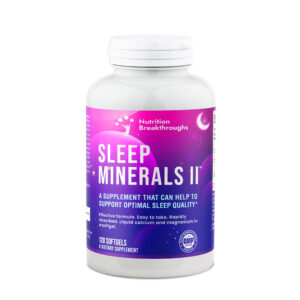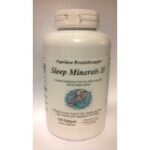 Menopause is a natural process when the production of female hormones (estrogen and progesterone) declines and a woman stops having her monthly periods. It usually happens gradually between the ages of 45 and 55.
Menopause is a natural process when the production of female hormones (estrogen and progesterone) declines and a woman stops having her monthly periods. It usually happens gradually between the ages of 45 and 55.
During this time, a woman can experience uncomfortable menopause symptoms such as hot flashes and night sweats, migraine headaches, anxiety, fatigue and insomnia.
Hormone replacement therapy drugs can help hot flashes, but according to the University of Maryland Medical Center, the long-term use of hormone replacement drugs can increase the risks of heart disease, stroke, blood clots in the lungs and breast disease As a result, more and more women today are seeking to use natural remedies.
One such remedy is evening primrose oil. This oil comes from the seeds of a wildflower that grows throughout the United States. In a study from the Archives of Gynecology and Obstetrics, researchers tested the effect of evening primrose oil on 56 menopausal women aged 45 to 59 with hot flashes. The women were given two capsules per day of evening primrose (500 mg per capsule) for a continuous 6 weeks. This resulted in a 42% improvement in the severity of hot flashes, as well as beneficial improvements in their life activities.
Can magnesium help menopause symptoms? Mineral supplements such as magnesium and calcium are of good benefit to menopausal women with hot flashes and night sweats. One example is a study from the Virginia Commonwealth University Health System. Women with at least 14 hot flashes a week received 400 milligrams of magnesium oxide for 4 weeks, increasing to 800 mg. per day if needed. At the end of the study, the magnesium supplements had reduced their frequency of hot flashes from 52 to 28 per week, which is a 41.4% reduction. Fatigue, sweating, and distress were also significantly reduced.
The 29 participants in the study were breast cancer survivors, thus they were unable to take the usual hot flash medications that have estrogenic activity such as hormone replacement or soy supplements. Many women, breast cancer survivors or not, prefer to take a non estrogen-active natural remedy for hot flashes and night sweats, and the researchers concluded that magnesium appears to safely reduce hot flashes with few side effects and at minimal cost.
Can magnesium help balance hormones? Yes, in fact as menopause approaches, there is an emerging link between estrogen decline, menopause symptoms, and the aspect of mineral deficiency. Mildred Seeling, M.D. describes this in her report in the Journal of the American College of Nutrition. She says “Estrogen enhances magnesium utilization and uptake by soft tissues and bone, and may explain the resistance of young women to heart disease and osteoporosis — as well as the increased prevalence of these diseases when estrogen production ceases.”
Magnesium works best when it’s balanced with calcium. The pioneering nutritionist Adelle Davis writes of mineral deficiency during menopause in her book Let’s Get Well. Davis says: “Calcium is less well absorbed and the urinary losses are greater when the output of estrogen decreases. Such calcium-deficiency symptoms as nervousness, irritability, insomnia and headaches are common.”
Magnesium has also been found to help other health conditions. According to Dr. Michael T. Murray, Doctor of Naturopathic Medicine, “In addition to helping with hot flashes, correction of low magnesium status may have additional health benefits. Magnesium deficiency is extremely common in Americans, and in addition to the well-known association between low magnesium and increased risk for cardiovascular disease, low magnesium levels have also been linked to an increase in Alzheimer’s disease, decreased muscle performance, insulin-resistance, and osteoporosis.”
Are there forms of magnesium that are more absorbable than others? Which magnesium for menopause? Some of the most highly absorbed forms of minerals are those that are mixed into a healthy base of natural oils. When carrier oils are used along with minerals in a softgel supplement, a creamy paste is formed inside that encourages increased mineral absorption. This results in a supplement that is absorbed more rapidly and fully than hard tablets or even powdered capsules.
One natural sleep aid that helps with hot flashes and night sweats and has increased in popularity among menopausal women is Sleep Minerals II from Nutrition Breakthroughs. This insomnia remedy contains highly absorbable forms of calcium and magnesium, the best minerals for sleeplessness and insomnia, as well as for heart health, restless legs syndrome, bone strength, and menopause insomnia. The formula also includes vitamin D and zinc and is delivered in a softgel form with healthy carrier oils, making it more fully assimilated and providing a deeper, longer-lasting sleep.
Anita L. of New Caney, Texas says: “I was having hot flashes every 30 minutes to an hour through the night and was so miserable. After about two weeks of taking the Sleep Minerals, I noticed an incredible difference with my sleep. I have much less interruption from flashes, I’m sleeping much better, and I’m a lot more comfortable.”
Valerie H. of Santa Clarita, California says: “I had such severe menopause insomnia it took me hours to fall asleep even though I was extremely tired. My legs also had crawling and tingling feelings at night. I got the Sleep Minerals II and after several days, it started to work really well. I fall asleep now within 20 minutes and no more restless legs.”
Natural menopause remedies are a healthier option for women with hot flashes, night sweats and insomnia. For more information on Sleep Minerals II visit this page.
Mineral supplements such as magnesium and calcium are of good benefit to menopausal women with hot flashes and night sweats. One example is a study from the Virginia Commonwealth University Health System. Women with at least 14 hot flashes a week received 400 milligrams of magnesium oxide for 4 weeks, increasing to 800 mg. per day if needed. At the end of the study, the magnesium supplements had reduced their frequency of hot flashes from 52 to 28 per week, which is a 41.4% reduction. Fatigue, sweating, and distress were also significantly reduced.
Yes, as menopause approaches, there is an emerging link between estrogen decline, menopause symptoms and the aspect of mineral deficiency. Mildred Seeling, M.D. describes this in her report in the Journal of the American College of Nutrition. She says “Estrogen enhances magnesium utilization and uptake by soft tissues and bone, and may explain the resistance of young women to heart disease and osteoporosis — as well as the increased prevalence of these diseases when estrogen production ceases.”
Some of the most highly absorbed forms of minerals are those that are mixed into a healthy base of natural oils. When carrier oils are used along with minerals in a softgel supplement, a creamy paste is formed inside that encourages increased mineral absorption. This results in a supplement that is absorbed more rapidly and fully than hard tablets or even powdered capsules.











